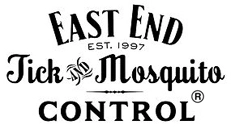The dangers of tick-borne illnesses are well known. We’ve recently posted about Lyme disease, anaplasmosis, and babesiosis… all of which are becoming increasingly common on Long Island. In addition to these tick-vectored diseases, there’s another more immediate danger of a tick bite: the possibility that you may have a tick allergy.
What Does an Allergic Reaction to a Tick Bite Look Like?
Tick allergy symptoms range from minor discomfort to life-threatening anaphylaxis. A mild allergy might involve swelling, itching, or redness around the bite. While a serious one can cause hives, low blood pressure, constricted airways, rapid pulse, nausea, vomiting, diarrhea, dizziness, or fainting. A severe reaction typically occurs suddenly and escalates rapidly.
How Do You Treat a Tick Allergy?
For a mild allergic reaction to a tick bite, apply a cold pack to the area and take Benadryl – or a similar non-prescription oral antihistamine. This should relieve itching, swelling, or redness.
If you experience any symptoms of anaphylaxis, this is an emergency, and you need to seek medical attention immediately. If you develop neurological symptoms after a tick bite (particularly an inability to move your lower extremities), this may be an unrelated condition called tick paralysis whish is a rare reaction that is also a medical emergency. Call 911 or go directly to a hospital’s ER if you suspect either anaphylaxis or tick paralysis.
If you discover that you have a tick allergy, consider carrying an EpiPen or other epinephrine autoinjector with you when spending time outside. Like other allergies, a tick allergy can worsen over time, and what once was a minor reaction becomes more severe. If you have a severe tick allergy and are bitten again, seek medical attention immediately and have the tick removed by a medical professional to prevent it from injecting more of its saliva into the bite.
How Do You Know if You’re Allergic to Ticks?
Because allergists don’t test for tick allergies, you probably won’t find out you have one until you’re bitten and develop symptoms. That’s why it’s so important to reduce the risk of tick bites by avoiding areas where ticks are likely to be present, wearing protective clothing and tick repellent when you go outside, and following a regular tick check protocol.
East End Tick & Mosquito Control® Protects Your Property from Tick Threats
One of the most effective ways to avoid being bitten by ticks is to keep them away from your property. Clear your yard of debris that can harbor ticks and call us to set up a tick-free perimeter to keep you, your family, and your pets safe. East End Tick & Mosquito Control® has protected Long Island families from tick threats for more than 25 years, so you can trust us to do the same for you. Contact us online for a free estimate, or call (631) 287-9700 in Southampton; (631) 324-9700 in East Hampton, or (631) 765-9700 in Southold.


